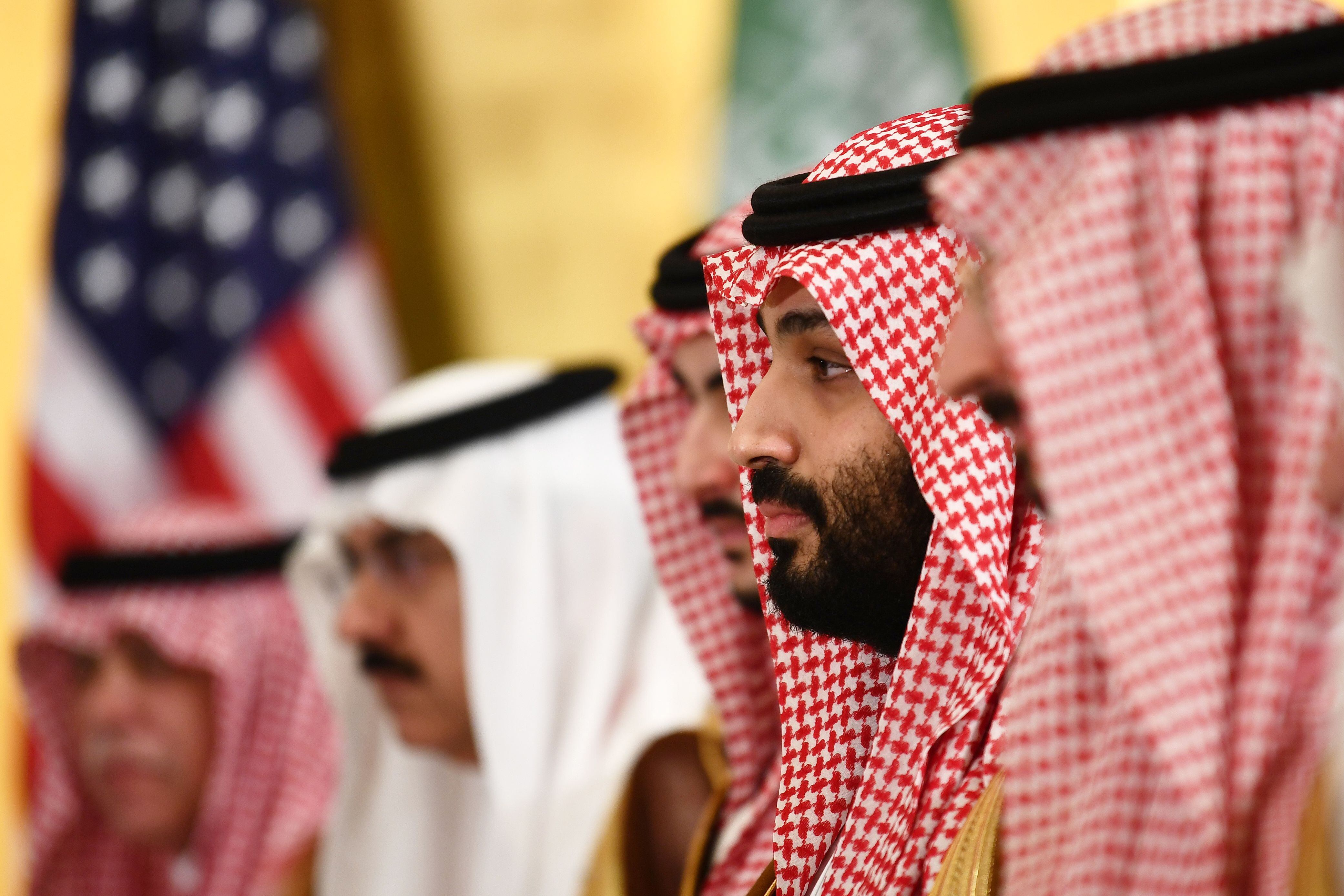BEIRUT ― In two Gulf countries focused on advancing artificial intelligence to boost their economies, experts expect military AI technology to progress quickly and extend the reach of the nations’ armed forces.
Saudi Arabia and United Arab Emirates also are carving a niche in the defense export market by adding AI capabilities and pursuing emerging technologies, said Jean-Marc Rickli, head of global risk and resilience at the Geneva Centre for Security Policy.
Both adopted Vision 2030 development strategies, which have data and AI at their core to help the countries move beyond oil-based economies, Rickli said.
Their militaries will realize benefits from the emphasis on AI.
“In the military, technology increasingly has the potential to become a surrogate in warfare. It allows smaller powers and also non-state actors, to use technology as a force multiplier across all dimensions of the battlefield and beyond,” Rickli said.
For example, with the limited size of UAE’s armed forces, “increasing integration of AI in the military, such as in weapons or C4ISR systems, allows defense tasks to be performed increasingly autonomously and thus reducing economic and human costs,” he said.
UAE leads the way in AI developments in the Gulf countries, Rickli noted. It was the first country to appoint AI minister and founded Mohamed bin Zayed University of Artificial Intelligence.
Last fall, the Saudi Data & AI Authority launched the country’s National Strategy for Data and Artificial Intelligence to make it a global AI leader by 2030. One effort has been to track data from COVID-19 infections to help with the country’s response and precautions.
RELATED

Artificial intelligence likely will have the most powerful effect on the countries’ financial sectors, but “it is in the domains of defense, intelligence, and counterterrorism where the use of AI will probably grow the fastest,” said Giorgio Cafiero, CEO of Gulf State Analytics, a Washington, D.C.-based consulting firm that assesses risks and opportunities among Gulf Cooperation Council states.
“Regarding the advancement of AI, there will be major consequences for the Saudi military as well as the kingdom’s security, especially when one considers the extent to which autonomous agents will play important roles in the future of Middle Eastern warfare,” Cafiero said.
A spot in the defense market
Previously, neither country has had the capabilities or workforce to invest in vast research and development for expensive weapons programs, but emerging technologies could provide a niche.
“As Turkey has developed a niche in the drone industry by producing drones (Kargu) that display semiautonomous features. Similarly, Israel has invested in this market (Harop and Harpy) in addition to air defense systems (Iron Dome) and cyber security. The UAE and KSA seem to adopt a similar path, to provide a niche in the defense market through emerging technologies,” Rickli said.
“Though it is costly for these technologies to mature, once they have reached maturity, their diffusion is very rapid. It is almost impossible to prevent the proliferation of codes. Furthermore, algorithms can also be repurposed, i.e. used or applied in a way that they were not intended,” he explained.
Rickli pointed to the example of how UAE’s Edge defense conglomerate is building automation and AI into some products. Edge ranked 22nd of the list of the top 25 arms-producing and military services companies in the world, according to the Stockholm International Peace Research Institute Arms Industry Database.
Last year, Edge subsidiary ADASI unveiled its first UAE-made vertical-takeoff-and-landing drone, Garmousha, that incorporates technology using AI algorithms.
“UAE with Edge has set the foundation to compete in the global defense market, and investments in AI automation offers huge growth potential,” Rickli said.
And the state-owned Saudi Arabian Military Industries recently acquired Advanced Electronics Co., a step forward in building its defense electronics capabilities. Plus, the deal lines up with Saudi Vision 2030 directives to increase in-country defense manufacturing.
Internal experts, international partnerships
Experts noted that automation and increased productivity from artificial intelligence could reduce the nations’ need for foreign workers.
“Through NSDAI [National Strategy for Data and Artificial Intelligence], the Saudis seek to lure roughly USD 20 billion in investment, both from abroad and from within the kingdom, in the next nine years and to train approximately 2,000 Saudis to become AI specialists before 2030,” Cafiero said.
The two countries still hire AI specialists from the West and increasingly from China to fill workforce needs, Rickli said. But they also set up academic institutions — UAE’s Mohamed Bin Zayed University of Artificial Intelligence and the Artificial Intelligence Initiative at King Abdullah University of Science and Technology in Saudi Arabia — to develop local talent, he noted.
With a new diplomatic agreement between UAE and Israel, there’s a good chance that their AI collaboration will increase. “When it comes to AI, the knowledge acquired by Israel in the field, notably in the defense sector, is very appealing for the UAE,” Rickli said. “Hence, it is very likely that cooperation will develop further in this field between the two countries.”
Agnes Helou was a Middle East correspondent for Defense News. Her interests include missile defense, cybersecurity, the interoperability of weapons systems and strategic issues in the Middle East and Gulf region.








